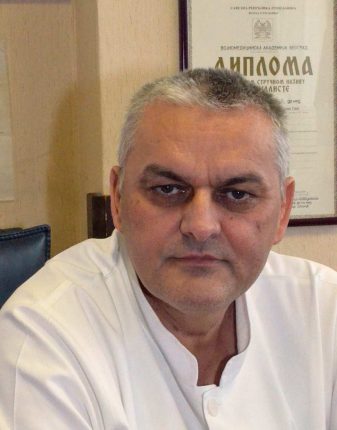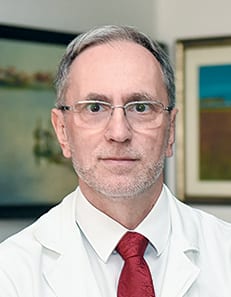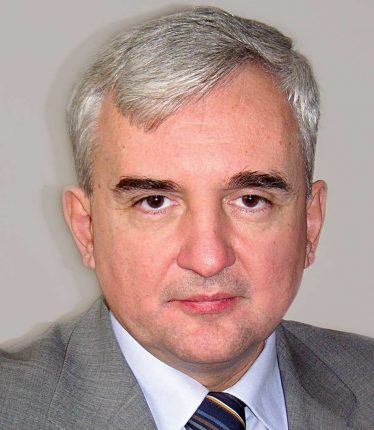Cannabis is derived from the cannabis plant. It grows wild in many tropical and temperate parts of the world. Research has shown that medical marijuana can be used to treat chronic pain, muscle spasticity, anorexia, nausea and sleep disruption
The possible legalisation of cannabis-based preparations in Serbia is being dealt with by the Ministry of Health, the Agency for Medicines and Medical Devices, the Working Group for the Legalisation of Marijuana for Medical Purposes, the Commission of the Chamber of Commerce & Industry of Serbia, but also individual groups of citizens who believe that these preparations would ease the symptoms of severe illness.
It was in late 2014 that Serbian Health Minister Zlatibor Lončar announced the possibility of marijuana being legalised for medical purposes.
“For everything that gives results in treatment, even for marijuana, the Ministry of Health will not cause a problem with inclusion in medical circles… Nevertheless, we also don’t want to introduce anything overnight. We want to familiarise all citizens with what this is all about,” said Minister Lončar at the time.
In order to launch the process of applying for cannabis-based medicines, a request for their registration was submitted to the Agency for Medicines and Medical Devices. The Commission submitted to the Ministry of Health a list of registered cannabis-based medicines around the world. It was also agreed, with regard to the conclusion of the Commission of the Chamber of Commerce & Industry of Serbia for the use of medicines containing cannabis, that all national expert commissions tasked with determining indications for the use of cannabis-based medicines submit to the Ministry of Health their expert opinions on indications for the use of these medicines, as well as a list of doctors who will be authorised to prescribe them.
All of these procedures are still underway.
In the meantime, as of 2017, Australia, Argentina, Bangladesh, Cambodia, Canada, Chile, Colombia, Costa Rica, Czechia, Germany, India, Jamaica, Mexico, the Netherlands, Portugal, South Africa, Spain, Uruguay, and some U.S. states have the laxest cannabis laws, while China, Croatia, France, Indonesia, Japan, Malaysia, Macedonia, Nigeria, Norway, the Philippines, Poland, Saudi Arabia, Singapore, South Korea, Thailand, Turkey, Ukraine, the United Arab Emirates and Vietnam have the harshest cannabis laws.
ArcView Market Research predicted in its report that the value of the U.S. legal cannabis market will achieve annual sales totalling a whopping $21.8 billion by 2020.
For this issue of CorD, in order to ascertain whether and when cannabis-based medicines will be obtained legally in Serbia via a doctor’s prescription, as opposed to only on the black market, we asked experts, doctors, specialists and citizens.
The Ministry of Health of the Republic of Serbia
Therapy – Yes, Cure – No
The conclusion of the Commission for the Chamber of Commerce & Industry of Serbia (CCIS) is that internationally registered drugs that contain natural tetrahydrocannabinol, or the same compounds obtained by chemical synthesis, definitely have their place in treating the symptoms of severe illnesses, primarily multiple sclerosis.
Internationally published clinical trials (Bayer, 2013) showed that this preparation doesn’t cure or slow down the progression of multiple sclerosis in any case, but it certainly alleviates symptoms and improves the quality of life of the patient. This preparation also has similar effects on certain symptoms in oncology patients undergoing chemotherapy. Thus, these medications must be made available on prescription, to patients who need them.
In order to start the process of utilising cannabis-based medicines, the Ministry of Health has submitted a request for the registration of these drugs to the Agency for Medicines and Medical Devices. The Commission has submitted to the Ministry of Health a list of registered cannabis-based medicines worldwide.
In order to start the process of utilising cannabis-based medicines, the Ministry of Health has submitted a request for the registration of these drugs to the Agency for Medicines and Medical Devices
It has also been agreed that, in light of the conclusion of the Commission for the CCIS on the use of medicines containing cannabis, all National Expert Commissions that are authorised to determine indications for the use of cannabis-based medications must submit their expert opinions to the Ministry of Health on indications for the applying of these medicines, as well as a list of doctors who will be authorised to prescribe these medicines.
All of these procedures are underway. With all expert opinions and a list of doctors who will be authorised to prescribe these medicines, the Ministry of Health will give an official statement after the submission of all necessary opinions.
The Commission for the CCIS gave the recommendation that the use of cannabis-based medicines be allowed on the basis of the U.S. Food and Drug Administration’s recommendation that it did not recognise or approve the marijuana plant as a medicine, but it did approve two compounds containing synthetic cannabinoids, based on the results of several scientific studies which confirmed their therapeutic effects, and those are:
-
- Dronabinol, synthetic tetrahydrocannabinol (THC) for the treatment of significant weight loss among HIV/AIDS patients, as well as for the treatment of nausea and vomiting caused by chemotherapy, when other drugs do not help;
- Nabilon, a THC-like synthetic substance for the treatment of nausea and vomiting in chemotherapy patients who do not respond to conventional antiemetics (approved in the U.S. in 1985, in use since 2006);
- Sativex, an oromacal spray containing natural tetrahydrocannabinol, for symptomatic relief of spasticity in patients with multiple sclerosis whose spasticity is not adequately controlled by conventional therapy.
Studies confirm that the use of natural and synthetic cannabis preparations is most appropriate in the following indications:
1) Multiple sclerosis: symptomatic relief of spasticity in patients with multiple sclerosis whose spasticity is not adequately controlled by conventional therapy (Sativex – oromacal spray, applied in the UK);
2) Malignant diseases: in patients with advanced/terminal malignant diseases and chronic mild to moderate pain – relieving nausea and vomiting in patients with malignant diseases who receive emetic therapy;
3) HIV/AIDS: in the treatment of cachexia/anorexia among these patients, in treating so-called Wasting syndrome (weight loss) to improve appetite;
4) Other neurological disorders: it is not clearly proven to impact on the progression or reduction of chorea symptoms in Huntington’s disease, cervical dystonia, levodopa-induced dyskinesia in Parkinson’s disease and epilepsy (Epidolex for the treatment of Dravet’s syndrome-child epileptic syndrome) – accepted by the European Medicines Agency;
5) It is also considered in the treatment of glaucoma;
6) Rheumatoid arthritis.
The Commission for the CCIS, based on the recommendations of the U.S. Food and Drug Administration that has not recognised or approved the marijuana plant as a medicine, has concluded that cannabis oil, which individual associations are seeking, should not be legalised, given the fact that no standards have been defined for the composition and production of cannabis oil.
 Professor Danica Grujičić, Head of the Centre for Neuro-oncology at the Neurosurgery Clinic of the Clinical Centre of Serbia, President of the Working Group for the Legalisation of Marijuana for Medical Purposes at the Ministry of Health
Professor Danica Grujičić, Head of the Centre for Neuro-oncology at the Neurosurgery Clinic of the Clinical Centre of Serbia, President of the Working Group for the Legalisation of Marijuana for Medical Purposes at the Ministry of Health
Narco Lobby Behind Request To Legalise Cannabis
There is no such thing as medical marijuana – the only thing proven for certain about cannabis is that it is a drug. The working group met twice. Most members were opposed to legalisation, but attitudes were irreconcilable and further work was suspended
The Ministry brought a decision, following the proposal of the Government Commission for Psychoactive Controlled Substances, that expert opinions on the legalisation of cannabis would be provided by the expert commission of the Ministry.
Behind the request for the legalisation of cannabis is a narco lobby that wants to ease the distribution and possibility of growing Indian marijuana, and the devastating consequences of its use for adolescents are well known. The new draft law on PAKS does not allow for the legalisation of cannabis.
I would like to bust another myth. Individuals suggest that behind doctors who do not want to legalise cannabis (which is 99.9% of them) stands the pharmaceutical mafia. I’ve been treating people with the worst diseases for 35 years, and I wonder if anyone can really believe that there is a medicine that can cure someone who is seriously ill, yet I or my colleagues don’t want to prescribe it due to some pharmaceutical companies?!
German politicians voted for the use of cannabis under pressure from the public, as it was in their interests. However, in practise 99 per cent of doctors refuse to prescribe cannabis because they know it’s not medicine!
Another argument offered in the public is that marijuana has been legalised “for medical purposes” in some Western countries. I will give you the example of Germany, where politicians voted for the use of cannabis under pressure from the public, as it was in their interests. However, in practise 99 per cent of doctors refuse to prescribe cannabis because they know it’s not medicine! Or the American example, which everyone cites, where it was stated in an official FDA announcement two months ago that there is no evidence that cannabis is medicine after all the tests in which they have been involved (FDA, IND, DEA, CDER).
When I give a medicine to a patient, I need to know the exact composition of the medicine, what the indications are, and what the contraindications and side effects are, what dosage I should give to which patient, and who is responsible in the case that complications arise. Alleviating a patient’s pain, and not drugging them in the process, can be achieved with official medicines, provided you know how to use them.
The Ministry of Health has allowed the use of cannabis-based medicines: Marinol (dronabinol) and Sativex (nabiximols).
 Colonel Professor Ranko Raičević, Head of the Neuropsychiatric Clinic of the Military Medical Academy
Colonel Professor Ranko Raičević, Head of the Neuropsychiatric Clinic of the Military Medical Academy
Essential Clear Message From The Profession And The State
With appreciation for the discussion about cannabis’s role in the medical sector, there is a real danger that this product is considered a medicine for very serious diseases, not only from the domain of oncology, where that is paradoxical but also in the domain of neurology
In modern medicine and contemporary neurology, the so-called concept of individual, personalised medicine is promoted, as the therapeutic process is increasingly directed towards ensuring a quality of life. For some diseases, we have defined treatments that do not cure, but which either slow down or modify disease. However, a significant number of impediments exist that significantly impair patients’ quality of life.
When we conduct surveys among our patients, we discover that they would prefer to retain some symptoms of the disease that we doctors view as difficult. For instance, when it comes to those suffering from Parkinson’s disease – they would prefer to have a huge number of undesired movements that practically hinder them from eating, but not to have stiffness. Although it seems to us that these huge oscillations in a movement are incredibly difficult for the patient, their experience is completely different.
In that sense, cannabis – from the domain of the personal attitude of modern medicine – has a place only in that symptomatic part for certain conditions that disrupt the quality of life, but in no way for the treatment of disease. And that’s fundamental – those two things mustn’t be combined.
The profession must have a clear view because laymen don’t have to know that. For them, if their quality of life changes they think they have affected the actual flow of the disease. Cannabis enables an improvement of mood and increased mobility, and leads to the opinion that it has also impacted positively on neuronal function – which is not accurate.
It must be clearly defined by the state, i.e. the profession and science, and then by the law, what we want to do, what preparations those are, from which manufacturers, how they are prescribed and who the doctors are that can prescribe them
In the specific case of neurology, these preparations are used in many countries around the world to relieve spasms in multiple sclerosis patients, post-stroke states and post-traumatic conditions, while they are used to alleviate pain in patients with various forms of cancer.
But, to be completely clear, before I give my vote for or against, the use of such preparations must be brought within clear legal frameworks; for it to be clearly known which preparations these are, which producers and which strengths. They must be standardised, like any medicinal substance, because supporting medicinal products must also satisfy certain toxicity capacities. Preparations must have certain parameters for their dosage and the control of that dose, and only then can we as a society assume a position regarding which diseases we could recommend for its use.
All of this that is currently happening poses a threat to patients who procure these products in various ways. Without any influence on who the producer it, and whether that is the only substance – whether there is only cannabis in the composition or if something else has been added.
Thus, it must be clearly defined by the state, i.e. the profession and science, and then by the law, what we want to do, what preparations those are, from which manufacturers, how they are prescribed and who the doctors are that can prescribe them.
Only then, in such a constellation of forces, would I be in favour.
 Dr Milan Savić, neurology specialist and director of the St. Sava Hospital for Cerebrovascular Diseases
Dr Milan Savić, neurology specialist and director of the St. Sava Hospital for Cerebrovascular Diseases
Cannabis Oil Doesn’t Cure But Does Help
It was only around ten days ago that Poland became the 12th EU country to permit the use of cannabis oil for medical purposes, while in Denmark potential cannabis growers are registering, because this country will – as of 1st January 2018 – also allow the use of derivatives from this plant for people suffering from cancer and multiple sclerosis; in Macedonia this practice became legal a year and a half ago, while in our country patients are still being supplied by the black market
It is evident that relevant scientific research to date has proven that cannabis derivatives, primary oil from this plant, do not cure diseases, but they do relieve many problems and are thus invaluable for patients who are no longer helped by conventional drugs and medicines.
One of the key arguments of opponents of legalisation is the lack of evidence that this plant cures. What evidence is available to the authorities in countries where the use of cannabis for medical purposes has been legalised?
Cannabis oil doesn’t cure but does have proven therapeutic effects, and anyone who monitors medical achievements in developed countries can familiarise themselves with that. Its effectiveness is indisputable when it comes to alleviating cancer pain, easing the side effects of chemotherapy treatment, relieving nausea, suppressing muscle spasm in patients suffering from multiple sclerosis, but also with many other conditions and diseases.
Is there any evidence that cannabis helps with malignant tumours, Parkinson’s disease, multiple sclerosis, AIDS, severe dermatological conditions and some other conditions and diseases, apart from the numerous subjective positive experiences of patients?
All studies on animals have shown that cannabis has anti-cancer, neuroprotective, immunosuppressive, anti-inflammatory and antiepileptic qualities, while numerous clinical trials on people are ongoing and their results are yet to be known.
Unlike smoking, marijuana and hashish, which relaxes the user and improves their mood, taking cannabis oil doesn’t bring any pleasure, but rather ineptness and drowsiness, which creates repulsion and not dependence
Various other studies have shown the neuroprotective effect of cannabis, as it prevents or at least slows the degeneration of neurons, which is invaluable to all those suffering from Alzheimer’s or Parkinson’s disease.
However, until the results of clinical trials and studies conducted on humans are published, nobody – with the exception of satisfied patients – can claim that cannabis cures. Unfortunately, these experiences cannot even be systematised, nor can they provide the basis to obtain relevant evidence. Medicine is science, and science is based on relevant data and evidence.
Opponents of legalisation claim that the legalisation of cannabis would lead to more severe forms of drug addiction, an increase in the number of addicts and patients with mental problems. What leads them to draw such conclusions when it comes to these unwanted symptoms and side effects?
Cannabis oil has no addictive potential whatsoever, which means it does not cause dependence. That’s why the U.S. DEA (Drug Enforcement Administration) has lowered its position on the list of substances with psychoactive effects. Patients who have used or use cannabis oil don’t feel any satisfaction, on the contrary.
Cannabis oil does not cause relaxation, joy, euphoria or other pleasant feelings, but rather an ineptness and drowsiness. But that’s also the essence, in alleviating pain, nausea, involuntary movements and other negative symptoms that accompany various diseases and therapeutic methods, and not in enjoyment.
With us, everything is excessively mystified, but the truth is that the legalisation of cannabis for medical purposes brings absolute control over its use, because in countries where this has long been regulated it is known precisely which doctors can prescribe it, for which indications, and which patients can receive it. A patient with a prescription goes to the chemists, pays for their ration and doesn’t feel like a criminal.
Fortunately, decriminalisation is slowly coming with us too, so the police no longer arrest people in possession of cannabis oil for personal use, nor do prosecutors lead proceedings.
Do you think the legalisation of marijuana for medical purposes would bring down the price of cannabis oil and make it more accessible to more patients?
Yes, certainly, because demand is currently higher than supply. Considering that this oil arrives illegally in Serbia, in bags and car boots from Croatia, Macedonia or Bulgaria, for now, the price cannot be lower. If the oil was sold legally, in chemists, it would be cheaper and more patients could purchase it.
Do advocates for treatment using cannabis oil recommended its use alongside official medicine or does one exclude the other?
It is estimated that several thousand people use cannabis oil in our country, including those who try in this way to alleviate nausea and other side effects of chemotherapy in oncology clinics. This best shows that patients who have given up on official treatment don’t decide to use cannabis, rather those who use it as a supplementary treatment prescribed by their doctor.
Some of them don’t say anything about that to their doctors, while others have actually been unofficially recommended by their doctors to purchase cannabis oil because they are not helped by any of the drugs intended to relieve nausea, cancer pain, involuntary movements in multiple sclerosis and other symptoms.
I have also been in a position to meet patients who took the oil at their own initiative in the treatment of various diseases, primarily malignant ones.
A special working group established two years ago by the Ministry of Health of the Republic of Serbia has recommended the use of two treatments containing synthetic cannabinoids and not to legalise cannabis oil. Is that a good decision?
In all countries around the world that have approved the use of cannabis derivatives, both cannabis oil and synthetic cannabinoids, as industrially manufactured medicines, are used, so the patient can, with approval and at the recommendation of their doctor, choose their preferred treatment. Numerous studies have also shown that the oil is more effective and has fewer side effects than synthetic drugs, which makes such a decision even stranger.
The Commission for the Application of Cannabis for Medical Purposes was guided by the recommendations of the FDA, which has not recognised or approved marijuana as a medicine, so it was concluded that cannabis oil should not be legalised because no standards have been defined for its composition and production. How can that be changed?
When the initiative to legalise cannabis was initiated in Macedonia, they clearly separated the production and processing of plants, and the distribution of oil, in order to ensure against abuse. In their country, it is today known precisely which doctors can write a prescription for cannabis oil and which indications provide the basis for that. This is a good example of how legalisation contributes to standardisation.
News arrives every day about the discovery of new medicinal properties of this plant and new countries that have legalised controlled production, processing, distribution and use of medical marijuana products. What prevents us from doing the same?
I know that the Israelis, at the Hebrew University of Jerusalem, have gathered together the greatest experts from around the world who have studied the positive effects of cannabis oil use. They are expected to find new evidence of the healing qualities of cannabis because work to expand the list of indications is going on wherever cannabis is legalised.
From an economic aspect, it is also known that cannabis production is the world’s fastest growing industry in the U.S. The Netherlands, the U.S. states of Colorado and California, and many other countries around the world base a large part of their exports precisely on the production of cannabis.
Do you consider that the ban on the legalisation of cannabis denies patient their basic human right to treatment and life?
If we agree that there is no cure for some diseases, but there is a way to alleviate pain and distress for the patient and to improve their quality of life, then it is clear that banning the use of cannabis oil threatens a human’s rights to life and treatment.
 Professor Nebojša M. Lalić, Faculty of Medicine, University of Belgrade, Clinic for Endocrinology, Diabetes and Metabolic Diseases, Clinical Centre of Serbia
Professor Nebojša M. Lalić, Faculty of Medicine, University of Belgrade, Clinic for Endocrinology, Diabetes and Metabolic Diseases, Clinical Centre of Serbia
Preliminary Findings of Controlled Trials Essential
Before expressing my opinion on this topic, I feel obliged to emphasise that in my professional and scientific activity I am not directed to work with cannabis-based medicines.
In that sense, I am convinced there are people who are more competent to form a final opinion on this issue, so the further text is merely a response to the invitation to get involved in the discussion from the standpoint of some general postulates in medicine and long-standing professional experience as a doctor.
For the application of plant-based or so-called natural preparations, as well as all other preparations, it is necessary to collect enough positive findings from the appropriately controlled studies to enter into the further procedure
It is known that internationally registered drugs containing natural tetrahydrocannabinols or the same in synthetic chemical compounds have their place primarily in treating the symptoms of severe diseases, such as multiple sclerosis, malignant diseases of the terminal stage of HIV. In that sense, the Ministry of Health has recognised the need to introduce these drugs, in palliative therapy for patients suffering from the aforementioned diseases, and formed a Commission for the Application of Cannabis, which recommended the initiating of proceedings on behalf of the Agency for Medicines, for approving this type of medicine. However, the use of cannabis oil as a natural preparation is not recommended by the Commission, which is in line with the decision of the U.S. Food and Drug Administration – one of the world’s largest regulatory bodies for evaluating the safety of medicines.
Starting from my introductory remarks, I am of the opinion that only those products whose effect has been scientifically tested and proven in clinical trials, under the control of medical experts, can be forwarded for approval procedures by regulatory bodies. In this sense, for the application of plant-based or so-called natural preparations, as well as all other preparations, it is necessary to collect enough positive findings from the appropriately controlled studies to enter into the further procedure. This is the only way to prevent later surprises and therapeutic errors, especially in the appropriate groups of patients who are generally vulnerable due to the nature of their illnesses.
 Miloš Simić, President of Social Cannabis Club Belgrade IRKA
Miloš Simić, President of Social Cannabis Club Belgrade IRKA
Cannabis Should be Completely Legal
Over the years, IRKA has become a symbol of knowledge and the struggle for the liberation of cannabis – not only in Serbia, but throughout the Balkans, and many activists, scientists and media from around the world are interested in the great successes of patients in Serbia who are illegally treated with cannabis bud extracts
Besides our website, which is like an encyclopaedia of cannabis and the endocannabinoid system, we have recorded and published the largest archive of publicly documented video evidence, over 150 public testimonies of patients who successfully cure themselves of various diseases, with cannabis.
Thanks to advice and assistance from our members, thousands of patients are today successfully, though still illegal, healing themselves with top-quality bud extracts, as well as cannabis buds, which are often self-made
As the greatest achievement, we consider the knowledge and practise that we share successfully with patients throughout the Balkans. Thanks to advice and assistance from our members, thousands of patients are today successfully, though still illegal, healing themselves with top-quality bud extracts, as well as cannabis buds, which are often self-made.
Every day we have many calls and consultations with members and patients who contact us for advice and help, with meetings, treatment workshops and panel discussions we organise whenever possible. We have organised two international seminars with scientists and professors from the U.S., Canada and Spain – experts for treatments using cannabis.
In contrast to successful treatments with cannabis, patients are under a complete blockade from media exposure and under constant law enforcement pressure. During the last two years some 14 members of our association, although ill, were arrested and prosecuted, even after public testimonies and appearances, including sick mothers with young children.
Synthetic cannabinoids that are legal in Serbia are not a solution, like anywhere else. Now we have standardised extracts and know the prescribed dosages. Our attitude, based on scientific knowledge and evidence, is that cannabis should be completely legal for all purposes, as the most useful plant known to man.